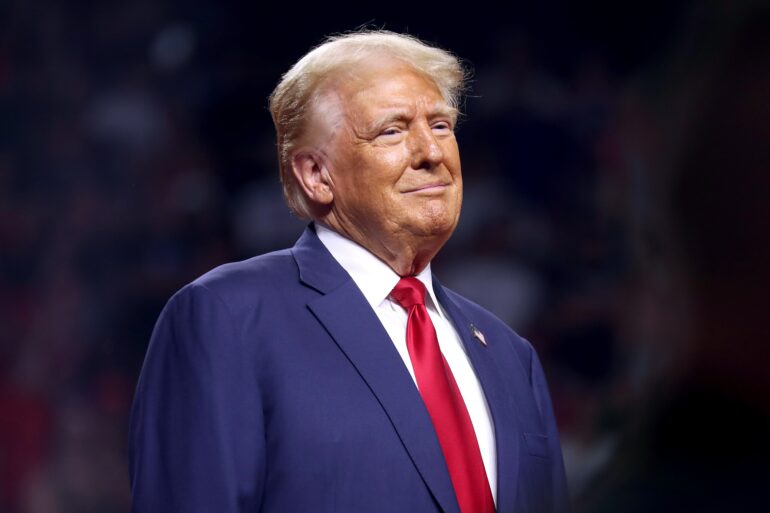President Donald Trump reportedly reaffirmed his administration’s commitment to imposing a 50 percent tariff on goods from the European Union, emphasizing that he is not seeking a deal to lower the tariffs.
Speaking in the Oval Office after signing several executive orders related to nuclear power, Trump addressed questions about his recent trade policies and their implications for U.S.-EU relations.
On his platform Truth Social, Trump announced the tariffs would take effect on June 1, 2025, stating, “There is no tariff if the product is built or manufactured in the United States.”
His comments reflect a continuation of his administration’s “America First” trade policy, which prioritizes domestic production over foreign imports.
During a press briefing, Trump explained that his approach aims to encourage European companies to establish manufacturing plants in the U.S. “If they build their plant here, then they have no tariff at all,” he noted.
This strategy is designed to shift the balance of trade in favor of American workers and industries.
When asked by reporters if he was open to negotiating with the EU to reach a different agreement, Trump was unequivocal. “I’m not looking for any deal. I mean, we’ve set the deal. It’s at 50 percent,” he stated.
This declaration marks a departure from previous statements where he suggested tariffs could serve as leverage in negotiations with foreign governments.
The president’s announcement comes amid volatile market reactions to his trade policies. The stock market has experienced significant fluctuations, often responding negatively when Trump raises tariffs, only to recover when he indicates a willingness to negotiate.
This pattern has raised concerns among investors about the stability of U.S. economic policy.
Trump reiterated his belief that the EU has not treated the U.S. fairly in trade agreements, claiming that European nations have historically banded together to exploit American markets.
“They haven’t treated our country properly,” he asserted. Citing a recent successful trade deal with the United Kingdom, Trump contrasted his administration’s efforts with what he characterized as the EU’s exploitative practices.
The tariffs on European goods are part of Trump’s broader strategy to reshape international trade relationships, particularly with nations he views as adversaries.
As he prepares to implement these tariffs, the implications for U.S. businesses and consumers remain uncertain, with potential increases in prices for imported goods looming on the horizon.
As the June deadline approaches, the U.S. business community watches closely, weighing the potential benefits of increased domestic manufacturing against the risks of retaliatory tariffs from the EU and other trading partners.
The administration’s hardline stance could redefine American trade policy for years to come, signaling a shift toward prioritizing national interests over global economic integration.
[READ MORE: Senate Votes to End California’s Electric Vehicle Mandate]



